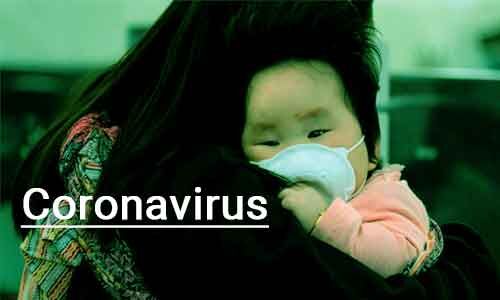- Home
- Medical news & Guidelines
- Anesthesiology
- Cardiology and CTVS
- Critical Care
- Dentistry
- Dermatology
- Diabetes and Endocrinology
- ENT
- Gastroenterology
- Medicine
- Nephrology
- Neurology
- Obstretics-Gynaecology
- Oncology
- Ophthalmology
- Orthopaedics
- Pediatrics-Neonatology
- Psychiatry
- Pulmonology
- Radiology
- Surgery
- Urology
- Laboratory Medicine
- Diet
- Nursing
- Paramedical
- Physiotherapy
- Health news
- Fact Check
- Bone Health Fact Check
- Brain Health Fact Check
- Cancer Related Fact Check
- Child Care Fact Check
- Dental and oral health fact check
- Diabetes and metabolic health fact check
- Diet and Nutrition Fact Check
- Eye and ENT Care Fact Check
- Fitness fact check
- Gut health fact check
- Heart health fact check
- Kidney health fact check
- Medical education fact check
- Men's health fact check
- Respiratory fact check
- Skin and hair care fact check
- Vaccine and Immunization fact check
- Women's health fact check
- AYUSH
- State News
- Andaman and Nicobar Islands
- Andhra Pradesh
- Arunachal Pradesh
- Assam
- Bihar
- Chandigarh
- Chattisgarh
- Dadra and Nagar Haveli
- Daman and Diu
- Delhi
- Goa
- Gujarat
- Haryana
- Himachal Pradesh
- Jammu & Kashmir
- Jharkhand
- Karnataka
- Kerala
- Ladakh
- Lakshadweep
- Madhya Pradesh
- Maharashtra
- Manipur
- Meghalaya
- Mizoram
- Nagaland
- Odisha
- Puducherry
- Punjab
- Rajasthan
- Sikkim
- Tamil Nadu
- Telangana
- Tripura
- Uttar Pradesh
- Uttrakhand
- West Bengal
- Medical Education
- Industry
Kids with COVID 19 may present with multisystem inflammatory disease: PICS

Paediatric Intensive Care Society has issued a statement that Increased number of novel presentation of multi-system inflammatory disease are being encountered in children. The statement is intended for medical professionals who look after critically ill children.
Paediatric Intensive Care Society has assured parents that serious illness as a result of COVID-19 still appears to be a very rare event in children. In case their child is unwell or has the symptoms of sepsis, then they should seek medical attention in the usual way as set out in guidance from the Royal College of Paediatrics and Child Health:
The total number of Covid 19 cases has risen to 3,094,829 cases from 185 countries, and at least 215,461 have died from their infections, according to the Johns Hopkins online dashboard. Besides normal symptoms in the UK in children, the multisystem inflammatory disease has been reported.
The NHS England and the U.K.'s Paediatric Intensive Care Society are telling clinicians to look out for children presenting with overlapping signs of toxic shock syndrome and atypical Kawasaki Disease with blood work consistent with COVID-19 (i.e., high C-reactive protein, erythrocyte sedimentation rate, and ferritin). NHS has reported a small number of cases. Some tested positive for COVID-19, while others did not. Common features have included abdominal pain, other gastrointestinal symptoms, and cardiac inflammation with elevated troponin and pro-B-type natriuretic peptide levels.
Over the weekend, PICS members received an email alert from NHS England highlighting a small rise in the number of cases of critically ill children presenting with an unusual clinical picture. Many of these children had tested positive for COVID-19, while some had not. The alert indicated "the cases have in common overlapping features of toxic shock syndrome and atypical Kawasaki disease with blood parameters consistent with severe
COVID-19 in children. Abdominal pain and gastrointestinal symptoms have been a common feature as has cardiac inflammation".It is important to highlight that, both in the UK and in other countries, there have still been very few cases of critically unwell children with COVID-19 admitted to paediatric intensive care units. However, an early case report relating to COVID-19 presenting as Kawasaki syndrome has been published recently, and PICS is aware of a small number of children nationally who appear to fit the clinical picture described in the NHS England alert.
The PICS has advised healthcare professionals treating children that in case they come across a child presenting with a picture of toxic shock or atypical Kawasaki Disease then they should discuss this case early with a paediatric infectious disease or paediatric critical care teams via their usual pathways (often paediatric retrieval services).
What are "blood parameters consistent with severe COVID-19"? Whilst it is too early to say with confidence, features appear to include high CRP, high ESR and high ferritin. In adults with COVID-19 disease, hyper inflammation or cytokine storm syndrome, as well as macrophage activation syndrome (MAS) and haemophagocytic lymphohistiocytosis (HLH) have been described.
What is "cardiac inflammation"? Children are presenting with a picture of myocarditis with raised troponin and proBNP. Some have an appearance of their coronary arteries in keeping with Kawasaki Disease.
PICS will continue to work with PICAnet and other national organisations to collect accurate data relating to critically ill children presenting to hospital with suspected COVID-19 disease.
For further reference log on to:
1. Jones VG, Mills M, Suarez D, et al. COVID-19 and Kawasaki disease: novel virus and novel case. Hosp Pediatr. 2020; doi: 10.1542/hpeds.2020-0123
2. Mehta P, McAuley DF, Brown M, et al. COVID-19: consider cytokine storm syndromes and immunosuppression. Lancet 2020 Mar 28;395(10229): 1033-1034. DOI:10.1016/S0140-6736(20)30628-0.
Dr Kamal Kant Kohli-MBBS, DTCD- a chest specialist with more than 30 years of practice and a flair for writing clinical articles, Dr Kamal Kant Kohli joined Medical Dialogues as a Chief Editor of Medical News. Besides writing articles, as an editor, he proofreads and verifies all the medical content published on Medical Dialogues including those coming from journals, studies,medical conferences,guidelines etc. Email: drkohli@medicaldialogues.in. Contact no. 011-43720751


